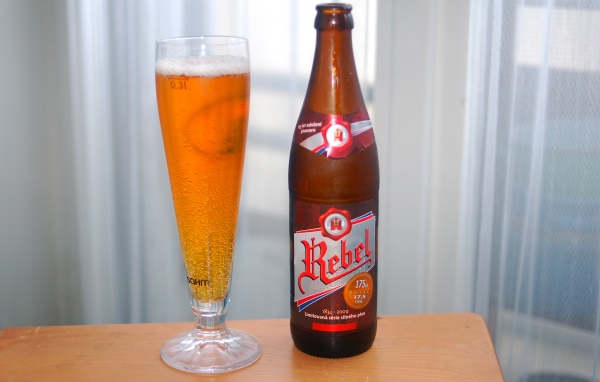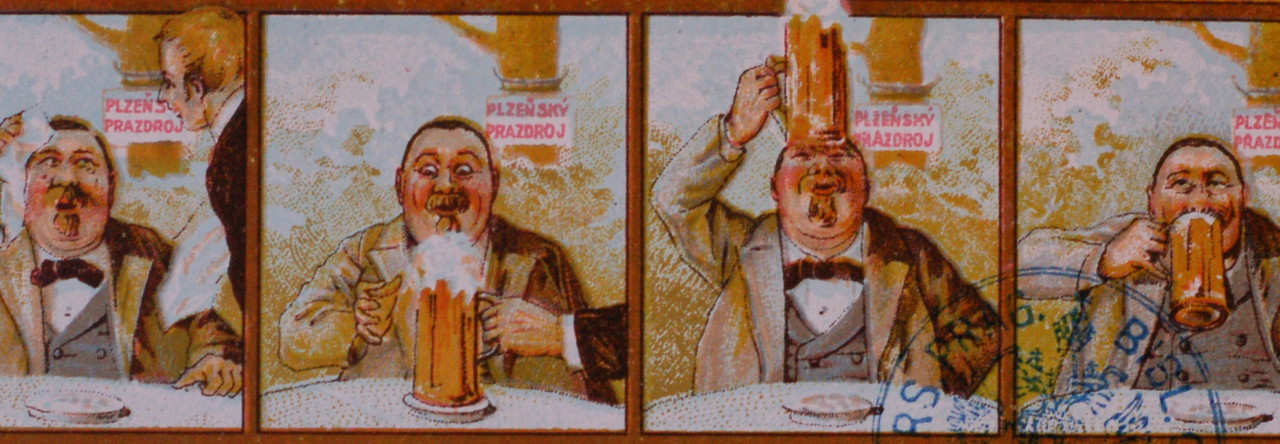
Czech brewers have a tradition of making special beers to celebrate special anniversaries. A common way to commemorate the date is to work the founding year into the recipe of the beer itself.
For example, to celebrate the 325th anniversary of Moravia’s Pivovar Vyškov, brewmaster Dušan Táborský created an excellent strong and hoppy pale lager, Jubiler, brewed at an original gravity of 16.80° Plato, to reflect the brewery’s founding year of 1680.
Other Czech beers have taken a similar path.
To mark its founding in 1530, Pivovar Černá Hora released a beer, simply called 1530, brewed at 15.30° Plato. And then there’s U Medvídků’s newish pale lager, 1466, whose original gravity should by now be pretty easy to guess. (Hint: it’s 14.66°).
But to mark this year’s 175th anniversary of its founding back in 1834, Měšťanský pivovar Havlíčkův Brod — better known as Rebel — zigged where everyone else zagged. Instead of brewing its celebratory beer at an original gravity of 18.34° Plato, Rebel took the “175” from the anniversary and gave it a starting gravity of 17.5° Plato. (Rebel? Maverick!)
And instead of simply calling the brew “1834,” Rebel went the scenic route, by which I meaning the long, loquacious road that leads over the Prolix Pass of the Circumlocutory Mountains, through the Valley of Verbosity and on deep into the Voluble Hills. As far as I can tell, this beer is called “Rebel 175let Extra Strong 17.5 Limitovaná série silného piva,” meaning “Rebel 175-Year Extra Strong 17.5 Limited Series Strong Beer.” At least that’s what’s on the front label, along with the dates “1834–2009.”
Because we’re friends, I’m just going to call it Rebel 17.5°.
The back of the bottle reads, in Czech, “By the occasion of the 175th anniversary of the founding of the Havlíčkův Brod brewery we have prepared a true specialty. This is the strongest beer that was ever brewed in Havlíčkův Brod. 1834–2009 Limited series of strong beer. Special pale beer.”
So what’s it like?
Interesting, but not something I’d run out and buy a case of. A bit of diacetyl is generally not considered a serious fault in Czech pale lagers, but in this case, it goes too far for my taste, creating overwhelming butterscotch and vanilla notes. Once you get past the diacetyl, it’s got a pleasant, long-lasting bitter finish. In terms of aroma, the front of the house is dedicated to malt, with strong corn and grainy notes. (And unfortunately, there’s not a whole lot of Hop Action™ here.) One good note: the alcohol is pretty subtle for a walloping 8%.
To be honest, I think this beer might have been more successful if it had actually been brewed at 18.34°. A wort strength above 18° Plato would lend itself to the style of strong dark lager called “porter” in Czech, meaning a Baltic Porter like Pardubický Porter and Primátor’s Double 24°. Instead, this is a strong pale lager much like Jubiler, but without Jubiler’s hoppiness to balance the sweetness of the malt. And the diacetyl is just too much for me. In this case, the brewery might have taken its name a bit too seriously.
Perhaps something less rebellious and slightly more charismatic for the 200th?




Pivní Filosof
Hmmm… Would love to get my tonsils on that one…. Do you think the diacetyl would improve with a bit of “aging”?